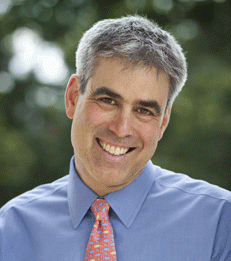Opinion
On U.S. Campuses, Free Inquiry Is Taking a Beating
—


But when any goal becomes a passionate goal shared by a group, it is likely to interfere with the pursuit of truth.
By Jonathan Haidt and Greg Lukianoff
At many top schools in America, the president felt obligated to send out a letter about the national election. Some letters were partisan—explicitly stating that a trauma or tragedy has just happened. Others tried not to be clearly identified as being on one side.
The president of UVA did what presidents of UVA always do, which is quote Thomas Jefferson. He has words of wisdom about everything. So Teresa Sullivan quoted Jefferson’s confidence in the ability of young Americans to deal with complex and difficult challenges. And what happens? Four hundred faculty members and students write a letter asking her to stop quoting Jefferson. The inclusion of Jefferson quotations undermines any message of unity, equality, and civility, they said, because Jefferson owned slaves. Telling the president of UVA to stop quoting Jefferson would have been unimaginable until a year or two ago.
There are increasingly two visions of the purpose of a university. One holds that the point of a university is to understand the world. I believe American universities rose to the top, globally, because they instantiated John Stuart Mill’s insight that “He who knows only his own side of the case knows little of that.” We don’t really absorb something deeply until we are challenged. People point out things we didn’t think of, and we have to defend our arguments. Criticism makes us all wiser. The university is an institution in which the way we engage with each other brings us closer to truth.
Read full article as published on Philanthrophy Roundtable.
___
Jonathan Haidt is the Thomas Cooley Professor of Ethical Leadership.
The president of UVA did what presidents of UVA always do, which is quote Thomas Jefferson. He has words of wisdom about everything. So Teresa Sullivan quoted Jefferson’s confidence in the ability of young Americans to deal with complex and difficult challenges. And what happens? Four hundred faculty members and students write a letter asking her to stop quoting Jefferson. The inclusion of Jefferson quotations undermines any message of unity, equality, and civility, they said, because Jefferson owned slaves. Telling the president of UVA to stop quoting Jefferson would have been unimaginable until a year or two ago.
There are increasingly two visions of the purpose of a university. One holds that the point of a university is to understand the world. I believe American universities rose to the top, globally, because they instantiated John Stuart Mill’s insight that “He who knows only his own side of the case knows little of that.” We don’t really absorb something deeply until we are challenged. People point out things we didn’t think of, and we have to defend our arguments. Criticism makes us all wiser. The university is an institution in which the way we engage with each other brings us closer to truth.
Read full article as published on Philanthrophy Roundtable.
___
Jonathan Haidt is the Thomas Cooley Professor of Ethical Leadership.
